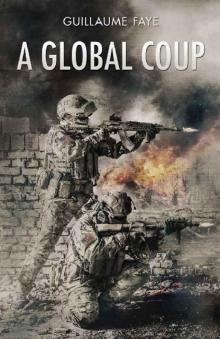This
book will equally shock atlanticists and anti-Americans, as it
targets both their vulgates.
Ever
since the fall of the USSR, traditional American imperialism has
undergone a profound change of essence and chosen to follow the path
of suicidal excess, striving to achieve global domination through its
novel mockery of the Roman Empire. But what accounts for such
conceited folly, such ‘hubris’? Is it the neoconservative
ideology, the financial interests of the military-industrial and
petro-political complexes, the influence of the Israeli lobby,
exaggerated nationalism or some other factor? These are the questions
that this book attempts to answer. Nevertheless, the author does not
believe that this New American Imperialism, which has taken on a
simultaneously military and techno-economic shape, could ever
represent a mortal threat to our European continent.
He
condemns both atlanticist milieus and those who have surrendered to
obsessive and hysterical anti-Americanism, an anti-Americanism that
is as ridiculous as it is counterproductive. He tackles both
Americanophilia and Americanophobia, a perilous endeavour by any
means. In his view, it is not America, whose power is highly
overestimated, that embodies a mortal danger from the European point
of view, but rather those who tolerate and contribute to the ethnic
invasion afflicting Europe, even if some milieus in Washington do
rejoice at this development and encourage it, without, however, being
responsible for it. The USA is seen not as Europe’s principal
enemy, but as a mere adversary. There is yet another notion suggested
by the author, one that complements the concept of
Euro-Siberia: Septentrion,
meaning the reunification of all peoples of European origin. It is no
longer from a geopolitical perspective that the latter is to be
understood, but an ethno-political one.
book will equally shock atlanticists and anti-Americans, as it
targets both their vulgates.
Ever
since the fall of the USSR, traditional American imperialism has
undergone a profound change of essence and chosen to follow the path
of suicidal excess, striving to achieve global domination through its
novel mockery of the Roman Empire. But what accounts for such
conceited folly, such ‘hubris’? Is it the neoconservative
ideology, the financial interests of the military-industrial and
petro-political complexes, the influence of the Israeli lobby,
exaggerated nationalism or some other factor? These are the questions
that this book attempts to answer. Nevertheless, the author does not
believe that this New American Imperialism, which has taken on a
simultaneously military and techno-economic shape, could ever
represent a mortal threat to our European continent.
He
condemns both atlanticist milieus and those who have surrendered to
obsessive and hysterical anti-Americanism, an anti-Americanism that
is as ridiculous as it is counterproductive. He tackles both
Americanophilia and Americanophobia, a perilous endeavour by any
means. In his view, it is not America, whose power is highly
overestimated, that embodies a mortal danger from the European point
of view, but rather those who tolerate and contribute to the ethnic
invasion afflicting Europe, even if some milieus in Washington do
rejoice at this development and encourage it, without, however, being
responsible for it. The USA is seen not as Europe’s principal
enemy, but as a mere adversary. There is yet another notion suggested
by the author, one that complements the concept of
Euro-Siberia: Septentrion,
meaning the reunification of all peoples of European origin. It is no
longer from a geopolitical perspective that the latter is to be
understood, but an ethno-political one.

 3- Treoir Dragon Chronicles of the Belador World
3- Treoir Dragon Chronicles of the Belador World Hometown Heroes
Hometown Heroes Without a Trace
Without a Trace Of Thorns and Lightning
Of Thorns and Lightning Madison's Gift
Madison's Gift Bound and Broken: An Isekai Adventure Dark Fantasy (Melas Book 1)
Bound and Broken: An Isekai Adventure Dark Fantasy (Melas Book 1) Signed, Sealed and Dead
Signed, Sealed and Dead Gotrek & Felix- the First Omnibus - William King
Gotrek & Felix- the First Omnibus - William King